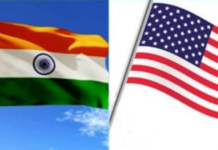New Delhi— The United States has defended its tariffs on steel and aluminum at the World Trade Organization (WTO), arguing they were imposed on national security grounds and should not be treated as safeguard measures.
The response came after India requested WTO consultations on April 11, claiming the tariffs imposed during the Trump administration fall under the WTO’s Safeguards Agreement and should have been formally notified as such.
India contended that while the U.S. labels the tariffs as national security measures, they functionally act as safeguard measures—typically used to protect domestic industries from a sudden surge in imports. India also noted that the U.S. did not notify the WTO Committee on Safeguards as required under the agreement.
In its April 17 response, the U.S. asserted that the tariffs were implemented under Section 232 of the Trade Expansion Act, which allows for trade restrictions if imports are deemed to threaten national security. “The President determined that tariffs were necessary to adjust imports of steel and aluminum that threaten to impair national security,” the U.S. stated.
Washington emphasized that Section 232 is a national security statute, and the tariffs fall under the national security exception provided in Article XXI of the General Agreement on Tariffs and Trade (GATT) 1994.
Furthermore, the U.S. clarified that the tariffs were not enacted under the Trade Act of 1974, which governs safeguard measures. “The United States is not maintaining these actions pursuant to the safeguards or emergency action provision. These actions are not safeguard measures, and therefore, there is no basis to conduct consultations under the Agreement on Safeguards,” the U.S. maintained.
The dispute highlights ongoing trade tensions between the two countries and raises questions over the scope of national security as a justification for trade restrictions under WTO rules. (Source: IANS)








